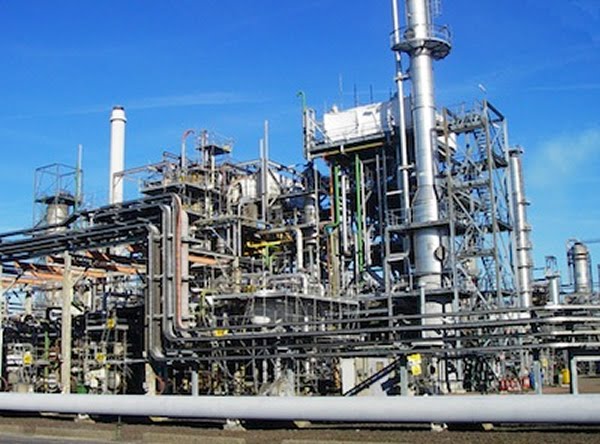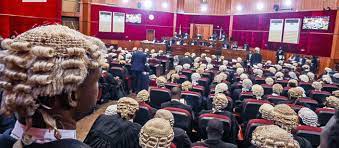By
Wole Arisekola
• None of the NNPC-owned refineries can work again
• They have a lifespan of 25 years which they have all surpassed
• The government should build new refineries instead of wasting money on dead plants
Refineries are critical energy infrastructure wherever they exist. The business of refining is complex with above-average complexity, in terms of technology, operations, and business management but is rewarding and strategic.
Refining business requires the right set of skills, commitment, and discipline to succeed. The strategic nature of the refineries is currently being experienced due to the socio-economic impact of the recent fuel subsidy removal in Nigeria without the refineries in production.
If the refineries were to be operational, such impacts would have been minimized to the barest minimum.
The three existing Nigerian refineries potentially create hundreds of thousands of direct and indirect jobs, will save the country billions of US Dollars that ordinarily may be used to import products, and support the survival of many SMEs.
It is, indeed, a shame that Nigeria, being one of the top oil-producing countries in the world is also reputed as one of the largest importer of petroleum products. Worst still, as some estimates reveal, it costs about US$20 for every barrel of crude oil that could be refined in Nigeria but exported and returned as imported products.
This easily translates to the loss of billions of US Dollars of desperately needed foreign exchange in addition to hundreds of thousands of local jobs and enabling the collapse of many manufacturing businesses.
The refineries suffered neglect for a long time and previous attempts to reverse the trend failed mainly due to a combination of several factors including but not limited to lack of commitment and misplaced priorities on the part of critical stakeholders.
The crude oil pipes that transport crude oil to the refineries have not only been vandalized and rusted, it will take 10 years before they can be fixed.
Luckily, the challenges of the refineries and how to tackle them are well-documented and incontestable. All it takes is the deployment of the right resources (humans and materials) and the commitment and support of critical stakeholders.
The required intervention will necessarily be in two phases due to the distinct sets of skills required – First is project management to restore the refineries to a state of reliable operation followed by proper operation and maintenance to ensure continuous, safe, and reliable operation.
State of the three existing refineries
All three existing refineries managed by NNPCL are reportedly at various stages of rehabilitation after previously being completely shut down from operations for, more than three years. Every drop of hydrocarbon was evacuated and sold and all the staff (except a handful of few) were transferred out. The refineries were, probably in conditions worse than typical mothballing.
From both official and unofficial reports, with respect to the ongoing rehabilitation initiatives, the following are noted: There is a lack of expected reasonable progress of the projects as well as signs of frustration on the part of many actors.
The owner’s representatives in charge of managing the projects lack the requisite experience for projects of such complexity and the contractor(s) may be taking good advantage of the situation.
Already the PHRC project is suffering delays and from unconfirmed information, more delays should be expected. The December 2023 target for commencement of operation is focused on the small old refinery (Area 5 of 60 kbpd) which is insignificant and unable to produce PMS. It will be misleading to report it as if the whole refinery will resume production by then.
For WRPC and KRPC, the approach is even worse. With no clearly defined scope of work at the moment pursuing a so-called “quick fixed” approach is even riskier in terms of the funding and completion schedule. The “quick fixed” was tried more than once in the past without success;
Even after the rehabilitation of the refineries is completed, a guarantee of reliable crude oil feedstock will be another huddle unless there is increased local production and the supply pipelines are fixed. There is an ongoing separate project of fixing the pipelines but it is still far away and alignment with the refineries projects is a huge challenge.
The operation and maintenance of the refineries after rehabilitation will be another major challenge because at the moment all the personnel of the refineries have been transferred out leaving a few that have no experience of refinery operation. There is a general shortage of such skills globally and developing these skills requires lots of time months to a year at a minimum.
Recently, due to a complete change of priorities away from operation-based businesses to trading/commercial businesses, even the upstream sector is suffering a similar letdown as shown in recent production performances. As a result of the big drop in crude production in Nigeria, the refineries will also face the challenge of adequate crude oil allocation post-rehabilitation if there is no improvement.
The way forward…
A critical and immediate review of the ongoing initiatives by competent and independent individuals who will be given the appropriate level of authority to come up with a very realistic way forward would be necessary.
Also appointment of a Special Adviser on Refineries Rehabilitation who reports directly to the highest authority and has unhindered access to oversee the project will be worth considering.
Such an arrangement will renew commitment, and bring more credence to the process necessary to restore the confidence of critical stakeholders and potential investors that may bring needed funding for the projects.
Mogaji Wole Arisekola writes from Ibadan, Oyo State, Nigeria






